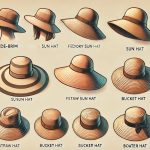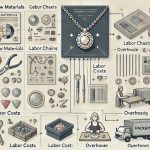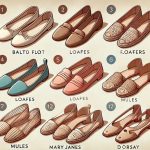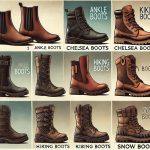Hoodies are a versatile and popular piece of clothing that combines comfort and style. They come in various designs, suitable for different occasions and preferences. The production of hoodies involves several steps and materials, each contributing to the overall cost.
How Hoodies are Produced
The production of hoodies is a complex process involving multiple steps that start with raw materials and end with a finished garment. From sourcing the fabric to the final packaging, each stage plays a crucial role in ensuring the quality and durability of the hoodie.
Sourcing Raw Materials
The first step in hoodie production is selecting the appropriate fabric. Common materials include cotton, polyester, or a blend of both. Cotton is known for its softness and breathability, while polyester offers durability and moisture-wicking properties. The choice of fabric depends on the desired characteristics of the final product, such as warmth, comfort, and cost-effectiveness.
Before the fabric is used in production, it undergoes rigorous quality control checks. These checks ensure that the material meets the required standards for thickness, texture, color, and strength. Any defects in the fabric could affect the final product, so this step is crucial in maintaining high quality.
Designing the Hoodie
Once the fabric is selected, the next step is designing the hoodie. This begins with creating a pattern, which serves as a template for cutting the fabric. Patterns are usually designed using specialized software, allowing for precise measurements and adjustments. The pattern includes all the pieces required to make the hoodie, such as the front, back, sleeves, hood, and pockets.
After the pattern is created, a prototype hoodie is made. This sample is used to test the fit and make any necessary adjustments to the design. The prototype also allows designers to evaluate the aesthetics of the hoodie, including how the fabric drapes and how the seams align. Any changes needed are made at this stage before mass production begins.
Cutting the Fabric
In preparation for cutting, the fabric is spread out in layers on large cutting tables. The number of layers depends on the volume of hoodies being produced. Spreading the fabric evenly is essential to ensure that all pieces are cut uniformly, reducing material waste and ensuring consistency in the final product.
The fabric is cut using various methods, depending on the production scale. For smaller batches, manual cutting with scissors or rotary cutters may be used. In larger production runs, automated cutting machines, such as laser cutters or die-cutting machines, are employed. These machines offer precision and speed, allowing for large quantities of fabric to be cut quickly and accurately.
Sewing and Assembly
Once the fabric pieces are cut, they are sewn together to assemble the hoodie. This process involves stitching the front and back panels, attaching the sleeves, and sewing the hood to the body of the hoodie. Specialized sewing machines are used for different types of stitches, such as overlock stitches for seams and cover stitches for hems.
Additional features, such as pockets, zippers, drawstrings, and labels, are added during the sewing process. These features not only enhance the functionality and style of the hoodie but also contribute to its overall durability. For example, reinforced stitching is used in high-stress areas like pockets and seams to prevent tearing.
Quality Control and Finishing
After the hoodie is fully assembled, it undergoes a thorough quality control inspection. This inspection checks for any defects in stitching, fabric, and overall construction. Inspectors look for issues such as loose threads, uneven seams, and misaligned patterns. If any defects are found, the hoodie is either repaired or discarded, depending on the severity of the issue.
Once the hoodie passes inspection, it is given finishing touches to enhance its appearance and comfort. This may include trimming any loose threads, pressing the fabric to remove wrinkles, and adding branding elements like tags or logos. Some hoodies may also undergo special treatments, such as garment washing or dyeing, to achieve a specific look or feel.
Packaging and Distribution
The final step in hoodie production is folding and packaging the finished product. Hoodies are typically folded neatly and placed in protective packaging, such as plastic bags, to prevent damage during transit. Some manufacturers may also include hang tags with care instructions and other information for the consumer.
Once packaged, the hoodies are ready for distribution. They are shipped to retailers, wholesalers, or directly to consumers, depending on the sales model. Efficient logistics and supply chain management are essential to ensure that the hoodies reach their destination in a timely manner.
Production Cost Distribution
The production cost of hoodies typically includes:
- Materials (40-50%): This includes the fabric (cotton, polyester, fleece, etc.), threads, zippers, and other trims.
- Labor (20-30%): Costs related to cutting, sewing, and assembling the hoodies.
- Manufacturing Overheads (10-15%): Includes costs for machinery, factory overheads, and quality control.
- Shipping and Logistics (5-10%): Costs associated with transporting raw materials and finished products.
- Marketing and Other Costs (5-10%): Includes marketing, packaging, and administrative expenses.
Types of Hoodies

1. Pullover Hoodies
Overview
Pullover hoodies are a classic style without zippers, typically featuring a kangaroo pocket at the front. They are known for their comfort and casual style, making them a staple in many wardrobes. Pullover hoodies can be made from various materials, including cotton, polyester, and fleece.
Popular Brands
| Brand | Established | Location |
|---|---|---|
| Champion | 1919 | Winston-Salem, USA |
| Hanes | 1901 | Winston-Salem, USA |
| Nike | 1964 | Beaverton, USA |
| Adidas | 1949 | Herzogenaurach, Germany |
| Carhartt | 1889 | Dearborn, USA |
Averaged Retail Price on Amazon
- $30 – $70
Market Popularity
Pullover hoodies are highly popular due to their simplicity and comfort. They are worn by people of all ages and are suitable for various casual occasions.
Production Details
- White Label Production Cost in China: $10.00 – $20.00 per unit
- Product Weight: 400 – 600 grams
- Minimum Order Quantity: 500 units
- Major Materials: Cotton, polyester, fleece, drawstrings
2. Zip-Up Hoodies
Overview
Zip-up hoodies feature a full-length zipper down the front, offering a convenient option for layering. They are versatile and can be worn open or closed, making them suitable for different weather conditions and styles. Zip-up hoodies can be made from various materials, including cotton, polyester, and fleece.
Popular Brands
| Brand | Established | Location |
|---|---|---|
| Levi’s | 1853 | San Francisco, USA |
| Under Armour | 1996 | Baltimore, USA |
| Puma | 1948 | Herzogenaurach, Germany |
| The North Face | 1968 | San Francisco, USA |
| Columbia Sportswear | 1938 | Portland, USA |
Averaged Retail Price on Amazon
- $40 – $80
Market Popularity
Zip-up hoodies are popular for their versatility and ease of wear. They are favored by athletes and outdoor enthusiasts who appreciate the convenience of the zipper.
Production Details
- White Label Production Cost in China: $12.00 – $25.00 per unit
- Product Weight: 450 – 650 grams
- Minimum Order Quantity: 500 units
- Major Materials: Cotton, polyester, fleece, zippers, drawstrings
3. Fleece Hoodies
Overview
Fleece hoodies are made from a soft, warm fabric known as fleece. They are ideal for colder weather, providing excellent insulation and comfort. Fleece hoodies can be either pullover or zip-up, making them versatile for different preferences.
Popular Brands
| Brand | Established | Location |
|---|---|---|
| Patagonia | 1973 | Ventura, USA |
| Columbia Sportswear | 1938 | Portland, USA |
| The North Face | 1968 | San Francisco, USA |
| Arc’teryx | 1989 | North Vancouver, Canada |
| Marmot | 1974 | Santa Rosa, USA |
Averaged Retail Price on Amazon
- $50 – $100
Market Popularity
Fleece hoodies are highly popular in colder regions and among outdoor enthusiasts. They are appreciated for their warmth and comfort during chilly weather.
Production Details
- White Label Production Cost in China: $15.00 – $30.00 per unit
- Product Weight: 500 – 700 grams
- Minimum Order Quantity: 500 units
- Major Materials: Fleece, cotton, polyester, zippers, drawstrings
4. Performance Hoodies
Overview
Performance hoodies are designed for athletic activities, featuring moisture-wicking and breathable materials. They often include additional features such as thumbholes, reflective details, and ergonomic designs to enhance performance during workouts or outdoor activities.
Popular Brands
| Brand | Established | Location |
|---|---|---|
| Nike | 1964 | Beaverton, USA |
| Under Armour | 1996 | Baltimore, USA |
| Adidas | 1949 | Herzogenaurach, Germany |
| Lululemon | 1998 | Vancouver, Canada |
| Reebok | 1958 | Boston, USA |
Averaged Retail Price on Amazon
- $50 – $120
Market Popularity
Performance hoodies are popular among athletes and fitness enthusiasts. They are favored for their functionality and ability to enhance athletic performance.
Production Details
- White Label Production Cost in China: $15.00 – $35.00 per unit
- Product Weight: 350 – 550 grams
- Minimum Order Quantity: 500 units
- Major Materials: Moisture-wicking polyester, spandex, zippers, drawstrings
5. Oversized Hoodies
Overview
Oversized hoodies are designed to be larger than standard sizes, providing a relaxed and comfortable fit. They are popular for casual wear and are often styled to give a trendy, laid-back look. Oversized hoodies can be made from various materials, including cotton, polyester, and fleece.
Popular Brands
| Brand | Established | Location |
|---|---|---|
| Champion | 1919 | Winston-Salem, USA |
| H&M | 1947 | Stockholm, Sweden |
| Zara | 1974 | Arteixo, Spain |
| ASOS | 2000 | London, UK |
| Urban Outfitters | 1970 | Philadelphia, USA |
Averaged Retail Price on Amazon
- $30 – $70
Market Popularity
Oversized hoodies are highly popular among young people and those who prefer a relaxed, streetwear style. They are often worn for lounging and casual outings.
Production Details
- White Label Production Cost in China: $10.00 – $20.00 per unit
- Product Weight: 500 – 700 grams
- Minimum Order Quantity: 500 units
- Major Materials: Cotton, polyester, fleece, drawstrings
6. Cropped Hoodies
Overview
Cropped hoodies are designed to end above the waist, offering a modern and stylish look. They are popular in fashion-forward circles and can be worn with high-waisted pants or skirts. Cropped hoodies can be made from various materials, including cotton, polyester, and fleece.
Popular Brands
| Brand | Established | Location |
|---|---|---|
| Nike | 1964 | Beaverton, USA |
| Adidas | 1949 | Herzogenaurach, Germany |
| Champion | 1919 | Winston-Salem, USA |
| Forever 21 | 1984 | Los Angeles, USA |
| Urban Outfitters | 1970 | Philadelphia, USA |
Averaged Retail Price on Amazon
- $25 – $60
Market Popularity
Cropped hoodies are popular among young people and those who follow fashion trends. They are often worn for casual outings and social events.
Production Details
- White Label Production Cost in China: $8.00 – $15.00 per unit
- Product Weight: 300 – 500 grams
- Minimum Order Quantity: 500 units
- Major Materials: Cotton, polyester, fleece, drawstrings
7. Graphic Hoodies
Overview
Graphic hoodies feature printed designs, logos, or images, making them a popular choice for self-expression and streetwear fashion. These hoodies can be made from various materials and often feature bold and creative designs.
Popular Brands
| Brand | Established | Location |
|---|---|---|
| Supreme | 1994 | New York, USA |
| Stüssy | 1980 | Laguna Beach, USA |
| Thrasher | 1981 | San Francisco, USA |
| Off-White | 2012 | Milan, Italy |
| A Bathing Ape | 1993 | Tokyo, Japan |
Averaged Retail Price on Amazon
- $40 – $100
Market Popularity
Graphic hoodies are highly popular in the streetwear and youth fashion markets. They are favored for their unique designs and ability to make a statement.
Production Details
- White Label Production Cost in China: $12.00 – $25.00 per unit
- Product Weight: 400 – 600 grams
- Minimum Order Quantity: 500 units
- Major Materials: Cotton, polyester, fleece, screen printing or digital printing
8. Eco-Friendly Hoodies
Overview
Eco-friendly hoodies are made from sustainable materials such as organic cotton, recycled polyester, or bamboo. These hoodies are designed to minimize environmental impact and appeal to environmentally conscious consumers.
Popular Brands
| Brand | Established | Location |
|---|---|---|
| Patagonia | 1973 | Ventura, USA |
| Tentree | 2012 | Vancouver, Canada |
| PACT | 2009 | Boulder, USA |
| Everlane | 2010 | San Francisco, USA |
| Alternative Apparel | 1995 | Norcross, USA |
Averaged Retail Price on Amazon
- $50 – $120
Market Popularity
Eco-friendly hoodies are increasingly popular as more consumers seek sustainable fashion options. They are favored by those who prioritize environmental responsibility.
Production Details
- White Label Production Cost in China: $15.00 – $30.00 per unit
- Product Weight: 400 – 600 grams
- Minimum Order Quantity: 500 units
- Major Materials: Organic cotton, recycled polyester, bamboo, drawstrings
9. Tech Hoodies
Overview
Tech hoodies are designed with advanced materials and features to enhance performance and convenience. They often include elements such as water resistance, built-in earphones, or hidden pockets for gadgets. Tech hoodies are popular among tech enthusiasts and those who appreciate innovative clothing.
Popular Brands
| Brand | Established | Location |
|---|---|---|
| 1998 | Mountain View, USA | |
| Ministry of Supply | 2010 | Boston, USA |
| Vollebak | 2015 | London, UK |
| SCOTTeVEST | 2000 | Ketchum, USA |
| AETHER Apparel | 2009 | Los Angeles, USA |
Averaged Retail Price on Amazon
- $60 – $150
Market Popularity
Tech hoodies are popular among tech-savvy consumers and those who value functional and innovative clothing. They are often used for travel, outdoor activities, and daily wear.
Production Details
- White Label Production Cost in China: $20.00 – $40.00 per unit
- Product Weight: 500 – 700 grams
- Minimum Order Quantity: 500 units
- Major Materials: Advanced synthetic fabrics, water-resistant coatings, integrated technology








